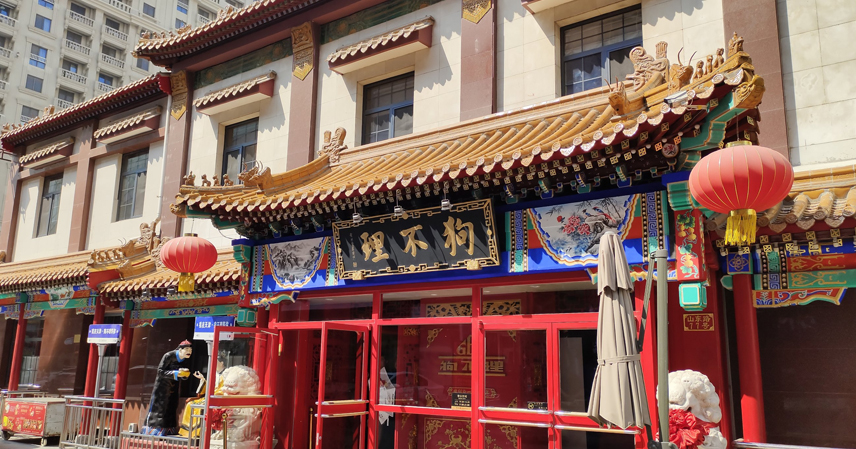As a working professional, I love business trips. They’re exhausting, sure, but they offer a chance to explore new cities, enjoy local scenery, and sample unique foods—a mini vacation of sorts.
Recently, I traveled to Tianjin for work. It was my first visit to this famous city, known for its vibrant street life, distinctive humor, and straightforward charm. After wrapping up business, I hit the streets to try Tianjin’s iconic cuisine, and top of the list was Goubuli buns, supposedly a must-try local delicacy.
Goubuli’s reputation preceded it, but to my shock, the experience was so disappointing that I understood why Tianjin locals stay tight-lipped. I tried Goubuli buns once, and there won’t be a second time.

1. Regret If You Don’t Try, Bigger Regret If You Do
Before heading to Tianjin, I was thrilled about Goubuli. It’s a hallmark of the city, a “China Time-Honored Brand” with a reputation that’s spread far and wide. A friend smirked when I mentioned my plan, saying, “Go ahead, you might regret not trying it, but after you do…” He trailed off, and now I get it.
I walked into the restaurant thinking, “A place this famous, open for so long, must have something special.” Reality slapped me hard. It’s the kind of experience where you regret not eating it because of the hype, but regret eating it even more.

2. Overpriced and Underwhelming
Goubuli’s prices are a wake-up call. A basket of eight pork buns costs 64 yuan—8 yuan per bun. Compare that to a Tianjin street stall where a meat bun costs 2 yuan, with thin skin, juicy filling, and oil dripping with every bite.
Goubuli’s buns? Thick skin, skimpy filling. The first bite had no meat, the second barely any, and the flavor was bland. The pork filling had an odd “stale” taste—neither fresh nor savory, almost like it had been frozen for ages. The sauced meat buns were worse: overly salty with a strange sweet aftertaste. I couldn’t stomach a second one. The “three delicacies” buns were a mystery—shrimp so tiny you’d need a microscope to find it.

3. Nearly 200 Yuan and Still Hungry
Beyond the buns, I ordered a few side dishes and different bun varieties—pork, sauced meat, and more. The bill? A jaw-dropping 198 yuan, nearly 200. For that price, you could feast at a proper Tianjin restaurant. At Goubuli, I left hungry—not because I didn’t want to eat, but because I couldn’t bring myself to.
The buns killed my appetite. I forced down two, left the rest, and thought, “Forget it, I’ll eat instant noodles back at the hotel.”

4. Indifferent Service
If the buns were a letdown, the service was infuriating. From the moment I walked in, the staff radiated an “eat it or leave” vibe. Ordering felt like a chore for them, and they tossed the buns onto the table without a word—not even a “enjoy.” When I tried to get more tea, I waved for ages while servers chatted in the corner, ignoring me. Finally, I went to the counter myself, only to be told, “Pour it yourself.” That’s when I truly understood why they’re called “Goubuli” (literally “dogs ignore it”).
5. No Wonder Locals Avoid It
Back at the hotel, I vented to a Tianjin friend, who burst out laughing. “You went to Goubuli? We locals never go there—it’s a trap for out-of-town tourists.” It hit me: Tianjin folks aren’t secretive; they just don’t bother warning outsiders. “You won’t listen anyway, so go step in the trap. You’ll get it after one bite.”
This experience taught me that “time-honored” doesn’t always mean quality. Goubuli’s fame may linger, but it’s a shadow of its former self, outshone by the 2-yuan street buns that pack more flavor.
What’s your take on this?



